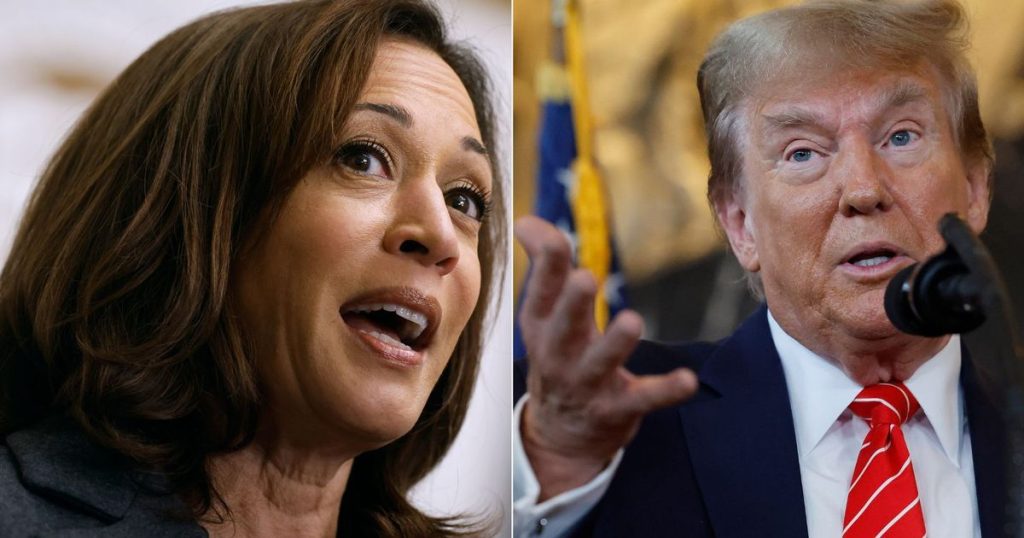Clinical psychologist Jennifer Noble, who specializes in helping parents of mixed-race children, criticized former President Donald Trump for questioning Vice President Kamala Harris’ ethnic background during a National Association of Black Journalists conference. Trump suggested that Harris had only recently embraced her Black heritage for political gain, leading to jeers from the audience. Noble noted that this incident highlights a common expectation that mixed-race individuals face – the pressure to choose one racial identity over the other.
The historical legacy of the ‘one-drop rule’ in the U.S. has long categorized individuals with any Black ancestry as Black, despite their other ethnic backgrounds. Today, many mixed-race people find themselves judged for not fitting neatly into one racial category. The multiracial population in the United States has been increasing, but conversations about multiracial experiences still remain limited. Mixed-race individuals often face questions about their racial identities and are sometimes viewed as untrustworthy or deceptive if they acknowledge both of their races.
Trump’s comments about Harris echo a harmful stereotype known as the “tragic mulatto” archetype, which portrays mixed-race individuals as confused or lost when it comes to their identity. One study found that white people consider biracial individuals to be less trustworthy if they switch their racial presentation in different contexts. These misconceptions and stereotypes can have negative mental health outcomes for mixed-race people, leading to feelings of disconnection and isolation from their cultural groups. Despite the increasing diversity of racial identities in the U.S., the societal dialogue around multiracial experiences remains limited.
Psychologist Sarah E. Gaither highlighted the impact of identity denial on multiracial Americans, noting that telling someone they are not Black when they actually are can be a significant source of stress. Gaither, a biracial Black and white person, shared her experiences of having her Black heritage denied or questioned by others. She emphasized the need to challenge fixed ideas about race and redefine racial identities to create a more inclusive society. The propagation of misinformation and racial stereotyping by political figures like Trump can have lasting consequences on public perceptions of diverse racial identities.
Analia Albuja, a psychology professor at Northeastern University, expressed concern about the implications of Trump’s comments on Harris’ racial identity. She highlighted the potential for questioning mixed-race people’s identity to become more socially acceptable if such rhetoric continues. Albuja and other researchers emphasized the importance of normalizing and accepting multiracial identities to create a more inclusive society. Mixed-race individuals like Ayumi Matsuda-Rivero shared their experiences of being assigned racial identities by others and the impact of constantly having to explain their mixed-race heritage to others.
Matsuda-Rivero emphasized the importance of recognizing mixed-race people’s right to express their identities as they see fit, without being burdened by others’ discomfort or expectations. She referenced Maria P. P. Root’s ‘Bill of Rights for People of Mixed Heritage,’ which asserts the right of mixed-race individuals to define their own racial identities. By challenging existing stereotypes and promoting acceptance of diverse racial backgrounds, individuals like Matsuda-Rivero hope to create a more inclusive and understanding society for multiracial individuals.


